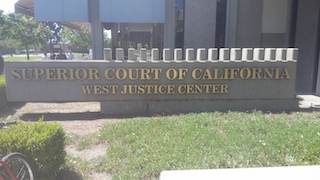Instead, the state can restrict or prohibit a person from practicing a profession by denying licensure when it finds the conduct in question is “substantially related” to the qualifications, functions, or duties of the business or profession. Business & Professions Code §§ 480 (license denials), 490 (license suspension or revocation). Some professional licenses, it should be pointed out, are exempt from Business & Professions Code §§ 475, 480 and 490, including licenses of attorneys (Business & Professions Code § 6000) and gaming licenses (Business & Professions Code § 19850).
 Westminster Superior Court
Westminster Superior Court
In some cases, the legislature has expressly provided that particular convictions are substantially related to the practice of particular professions. For example, Business & Professions Code § 2239 (relating to the practice of medicine) provides that two or more misdemeanor convictions or any felony conviction for offenses related to the consumption of alcohol constitute unprofessional conduct. See Griffiths v. Superior Court (2002) 96 Cal.App.4th 757 (under Business & Professions Code § 2239, record of convictions constitutes conclusive proof of unfitness to practice medicine). For physicians convicted of sex offenses, see Business & Professions Code §§ 2232, 2236.1.
Each licensing agency subject to Business & Professions Code §§ 480 and 490 is required to establish a definition of “substantial relationship.” Business & Professions Code § 481. The Education Code, at Education Code §§ 44424-44425, specifically enumerates which Penal Code violations trigger suspension or revocation proceedings against credentialed teachers.
However, most agency definitions are quite subjective to determine if specific conduct is substantially related to the practice of the business or profession in question. For example, in Sulla v. Board of Registered Nursing (2012) 205 Cal.App.4th 1195, the administrative law judge found a nurse’s DUI conviction was not “substantially related” to the qualifications, functions or duties of a nurse, but ruled that discipline was appropriate under Business & Professions Code § 2762(c).
Likewise, in Griffiths v. Superior Court (2002) 96 Cal.App.4th 757, a physician was convicted of DUI and had two more convictions for reckless driving involving alcohol. The court of appeal reversed the administrative law judge’s ruling that the three convictions were not substantially related to the practice of medicine, finding that the repeated convictions reflected poorly on his common sense and professional judgment and tended to undermine public confidence in and respect for the medical profession. Id., at 771. The appellate court acknowledged that no harm to any patient resulted from his drinking, but stated that license discipline has a preventative function as well, i.e., protection of the public, and that “it is far more desirable to discipline before a licensee harms any patient than after harm has occurred.” Id. at 772.
We find these two rulings inconsistent and, quite frankly, disconcerting. Therefore, if one holds a state license for a profession, it is prudent to discuss the specifics of a conviction with a professional licensing attorney to ascertain whether it is substantially related to the qualifications, functions and duties of a certain profession.
For more information about professional licensing issues and convictions, please click on the following articles:
 Westminster Superior Court
Westminster Superior Court